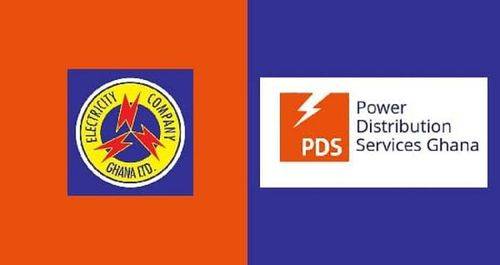Privatization of ECG: Three Options Confronting Government
Privatization of state-owned enterprises (SOEs) has long been a thorny issue in most countries, with some people contending that efficiency and better services are brought in by privatization while others worry about job losses and the erosion of public interests. One such SOE is the Electricity Company of Ghana (ECG), which is the biggest power distributor in the nation. The Ghanaian government is faced with a critical decision regarding the destiny of ECG, which has been plagued by inefficiency, financial difficulties, as well as power supply issues. Three alternatives are available for ECG's privatization: full privatization, public-private partnership (PPP), or strategic management agreement. All of these options have their strengths and weaknesses, and choosing the best-placed option requires careful consideration of the country's priorities, economic status, and welfare of the public.
Option 1: Full Privatization
Complete privatization involves privatizing all the ownership and management of ECG to private investors. Under this scheme, the state would sell its stake in ECG to private enterprise, who would take charge of day-to-day operation and decision-making. Full privatization supporters argue that private enterprise will introduce competition, increase efficiency, reduce government expenditure, and improve service quality. With a profit motive, a private firm would tend to improve infrastructure, reduce losses, and employ better customer service practices, which are lacking in state-owned businesses.
However, total privatization's opponents contend that it would have adverse social and economic effects. Total privatization of essential services like electricity could lead to higher tariffs as companies make profits to the maximum. Also, the government has less control over an important national asset and becomes vulnerable to price hiking or reduced focus on public concerns. Also, privatization could witness the loss of jobs since private companies attempt to reduce costs by curtailing operations.
Option 2: Public-Private Partnership (PPP)
Public-Private Partnership (PPP) is a mechanism where the government still retains ownership of ECG but has a private partner taking care of its management and operational efficiency. The private company is usually contracted to work for a specified period of years, whereby they provide technical expertise, infrastructure investment, and operational efficiency. This partnership is conceived so that the best of both the public and private domains comes together: the public retains ownership and ensures that electricity remains a public good, and the private partner contributes capital and operations expertise to make the company more efficient.
PPP deals can be attractive since they allow the government to retain some level of control over ECG, while leveraging the expertise and efficiency that a private partner can provide. The model also possesses the capacity to balance profitability and social responsibility such that the provision objectives and affordability are met.
That notwithstanding, PPPs also have their own set of challenges. The government will need to remain an active regulator and monitor to prevent exploitation. The private partner is also likely to prioritize short-term profit over long-term development, and the government will not be able to enforce accountability effectively. Any incompetence or mismanagement on the part of the private partner can also lead to public backlash, especially if electricity prices rise or services degrade.
Option 3: Strategic Management Agreement
A strategic management agreement (SMA) would involve hiring a private company to manage ECG on behalf of the government, but not transferring ownership. The private company would be responsible for improving the efficiency of the company in operations, performing the day-to-day activities, and making strategic decisions, but the government would not relinquish ownership and control. The logic of this policy is to bring in expertise and managerial skills into addressing the issues of ECG, without transferring ownership or control of the company.
One advantage of a strategic management contract is that it allows the government to exercise full ownership and control over the assets and operations of ECG, but also benefit from the experience and innovative thinking a private manager can provide. It is sometimes viewed as a compromise between privatization and full government ownership. It can even mitigate the risks associated with price hikes or retrenchment that are associated with privatization.
But a strategic management contract has its detriments. The private management company may not have the same level of financial incentive to commit to long-term infrastructure and development as a completely privatized entity would have. Further, without good regulatory oversight, a management contract may generate inefficiencies or incremental efficiency at best if the private company is not held accountable for performing its contractual obligations.
The Best Option: Public-Private Partnership
Among the three options available, it can be said that PPP is best suited and feasible for the Ghanaian government to opt for. It permits the inclusion of private sector funds and expertise in a way where government hold on strategic guidance as well as shareholding may continue.
The PPP structure works well as it combines the efficacy of the private sector with the public sector role to help retain electricity both cheap and accessible for all its people. The system also comes up with a well-balanced reconciliation between keeping the power inexpensive while satisfying business drivers to make efficiencies in its running and limit economic losses. With proper regulation and control, the government can make sure that the actions of the private partner are in the public interest, without the negative effects of full privatization, such as price hikes or lay-offs.
Lastly, though all the alternatives are a good step for the future of ECG, the Public-Private Partnership model gives the most appropriate compromise. It retains the control of the government over the strategic direction of ECG, while gaining the advantages of private sector involvement in improving efficiency, infrastructure, and service delivery. If the government can establish robust regulatory frameworks and hold people accountable, the PPP model can improve the operations of ECG and assist the energy security of the country without sacrificing public welfare.




No comments yet
Be the first to share your thoughts!